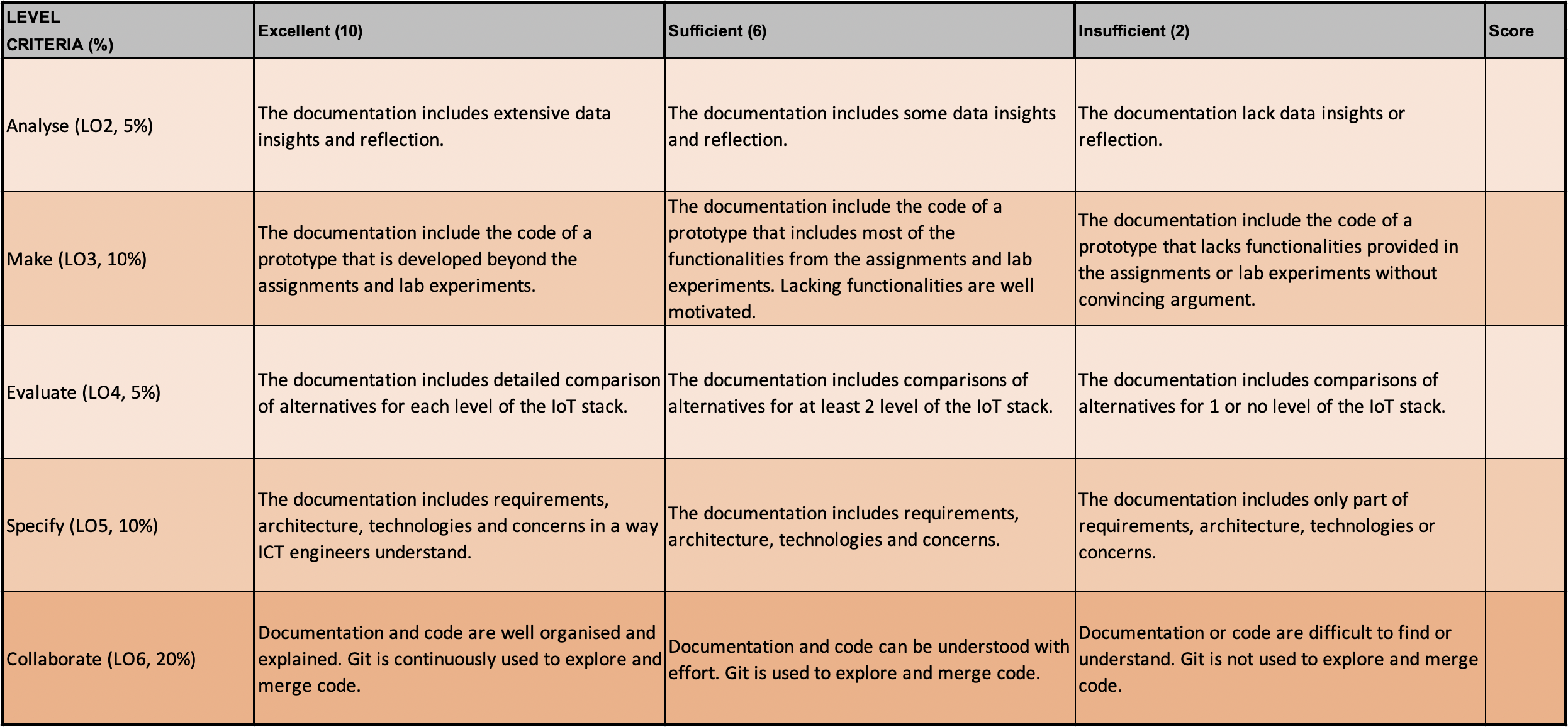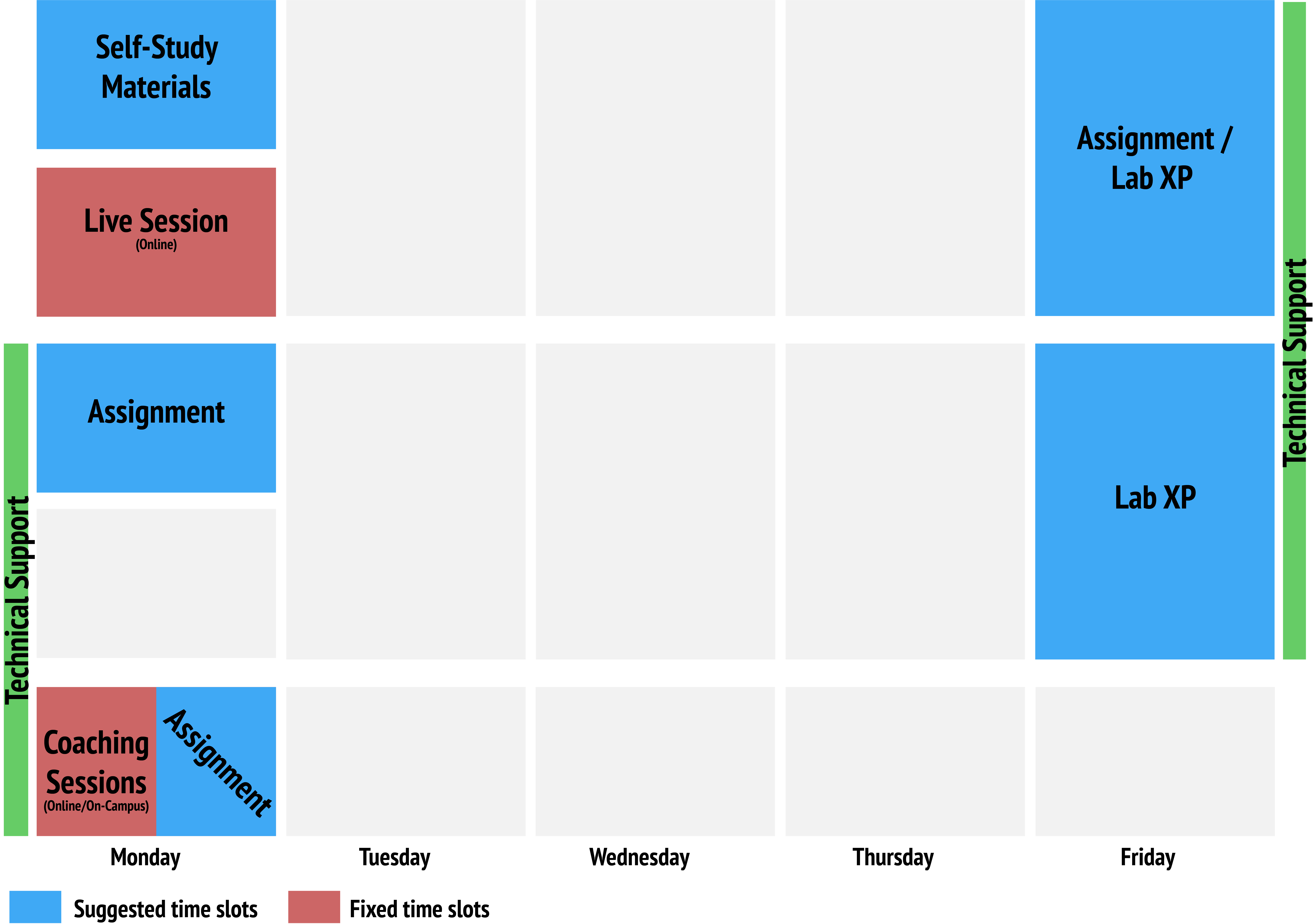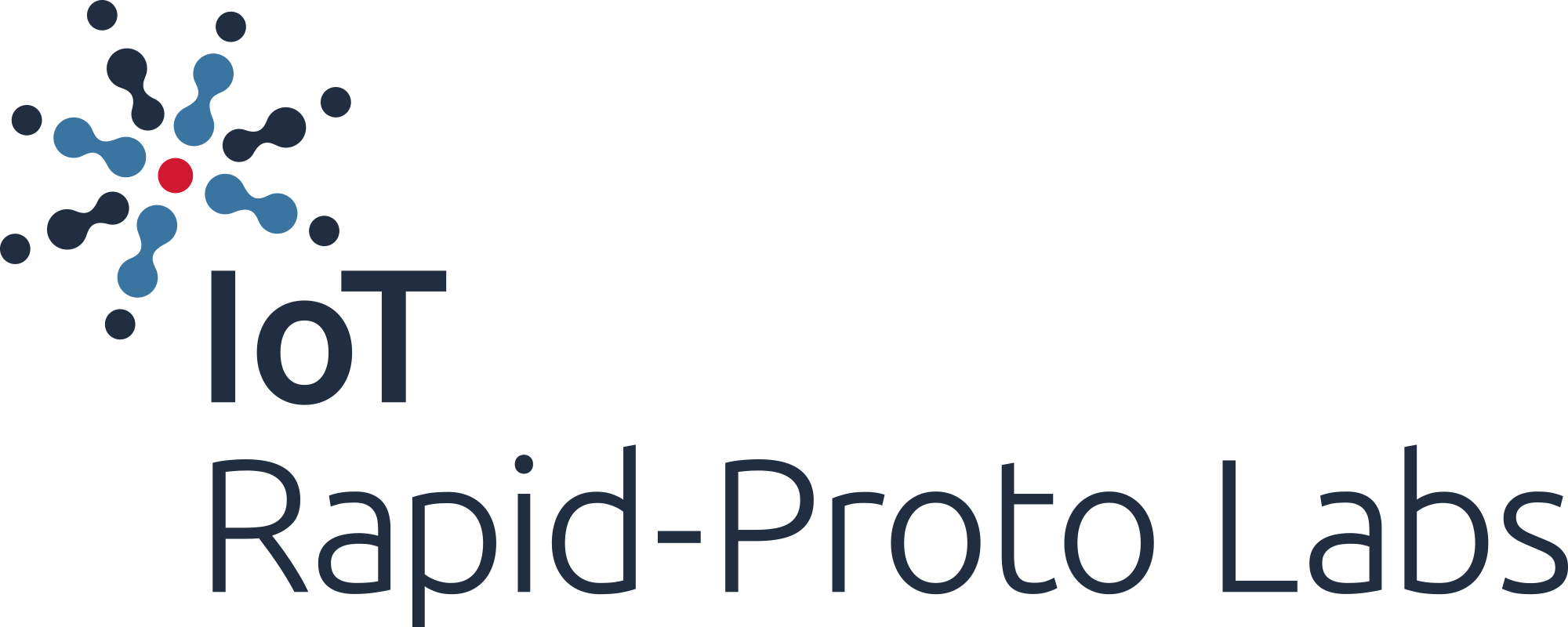Welcome to Prototyping Connected Products! In this course, you will develop your ability to build and use functional prototypes as part of your design process. You will gain this prototyping experience through the guided development of a connected light product. In teams of three, you will build and use several iterations of this product with a strong focus on the technology and the functional implementation. You will rely on a Raspberry Pi – small computer – to sense contextual changes and control connected light bulbs via Python code. Your prototype will help you gain an understanding of the technologies through tests and data exploration.
Goals
After this course, you should be able to:
Explain the core technology components of the Internet of Things and the role of prototyping in this context;
Make sense of what sensor data to collect in order to achieve a certain insight on what is happening;
Develop the prototype of a connected product by adapting and integrating pieces of code using Python;
Motivate the selection of technological components;
Express your design (considerations) in a way ICT engineers understand;
Document your prototyping process and collaborate with peers, using Git and GitHub;
Context
Taking this course from home, we will focus on lighting. Light is an essential element at home, one of the first connected product we saw emerging on the market. It is a powerful example to explore as it can be simple while covering all the fundamentals of a connected product.
Good Night Lamp is a London-based company offering a pair of little, connected, lightened houses to connect two friends or relatives. Turning one ON or OFF will trigger its twin to react, allowing a tangible yet simple interaction over the distance. During this course, we will use this concept to develop prototyping skills for connected products.
In teams of 3, you will prototype a connected light that helps to maintain distant relationships with friends and relatives. The focus is on software, leaving out the hardware prototyping. To this end, you will receive a Prototyping Kit which already includes a connected light bulb. You will learn how to shape the behaviour of this light bulb, to define the interaction between the 3 light bulbs of your team and to add contextual information from sensors and web services.
Assessment
In this course, you will be assessed through the documentation of your prototype (per group) as well as an individual exam. The following table highlight the Learning Objectives (LOs) with their weight in each assessment.

Documentation of your prototyping process (group, 50%)
Throughout the assignments and lab experiments, you will be prompted to report on your process, results, interpretation or reflection. You will receive formative feedback on this documentation from your coach every Monday evening. The documentation assessment (summative) is done once at the end of the course and involve at least two coaches. This assessment focuses on your ability (in order of importance) to collaborate, specify, make, evaluate and analyse. It is reflected in the following rubric:

Structure of the master branch at the end of the course
Open book exam (individual, 50%)
At the end of each self-study materials, you will be invited to fill in a quiz. This quiz is anonymous and automatically provides you with (formative) feedback on your understanding of the self-study material. At the end the course (week 10), you will take part in an online, open-book exam with questions of the same type as the weekly quizzes. This exam will assess your individual ability to explain and evaluate.
Modules
The course follows offer all activities online, going back-and-forth between activities on your own and your peers, and interactions with teachers and coaches. It is an 8-week course including 6 modules of one week, followed by a week of revision and an exam in the 10th week.

In each module you will:
- familiarise yourself with key concepts through self-study materials including videos and articles (2hrs, individual). At your own pace, you can cover this material and check your understanding with a formative quiz. These quizzes are anonymous, providing you with automatic feedback on answers.
- experience concepts in practice and deepen your understanding with live sessions on Monday from 10:45 to 12:45 (2hrs, classroom). Teachers will walk you through some of the key concepts in practice with demonstrations. These sessions offer you a key moment for questions regarding the course material.
- develop a team prototype of a home lighting system with increasing complexity, following step-by-step assignments (4 to 8hrs, team). You will acquire hands-on experience of programming to serve your need for functional prototype development.
- validate real-world performances of the (evolving) team prototype through lab experiments (4-8hrs). You will report on your experiment, the data you collected and the insights you gained
- meet with your team coach during the coaching session on Monday between 18:00 and 20:00 to receive formative feedback on your reported experiment.
You will have access to our technical on Monday afternoons and Fridays through MS Team or on campus on Mondays from 18:00 to 20:00.
#4 Connect

In the fourth module, you will add networking capabilities to your system, which we will consider to be an additional sensory capability, further improving its contextual behaviour. For example, you will detect smartphones on the home network, providing an indication of inhabitants being at home or away from home.



The European Commission's support for the production of this publication does not constitute an endorsement of the contents, which reflect the views only of the authors, and the Commission cannot be held responsible for any use which may be made of the information contained therein.




